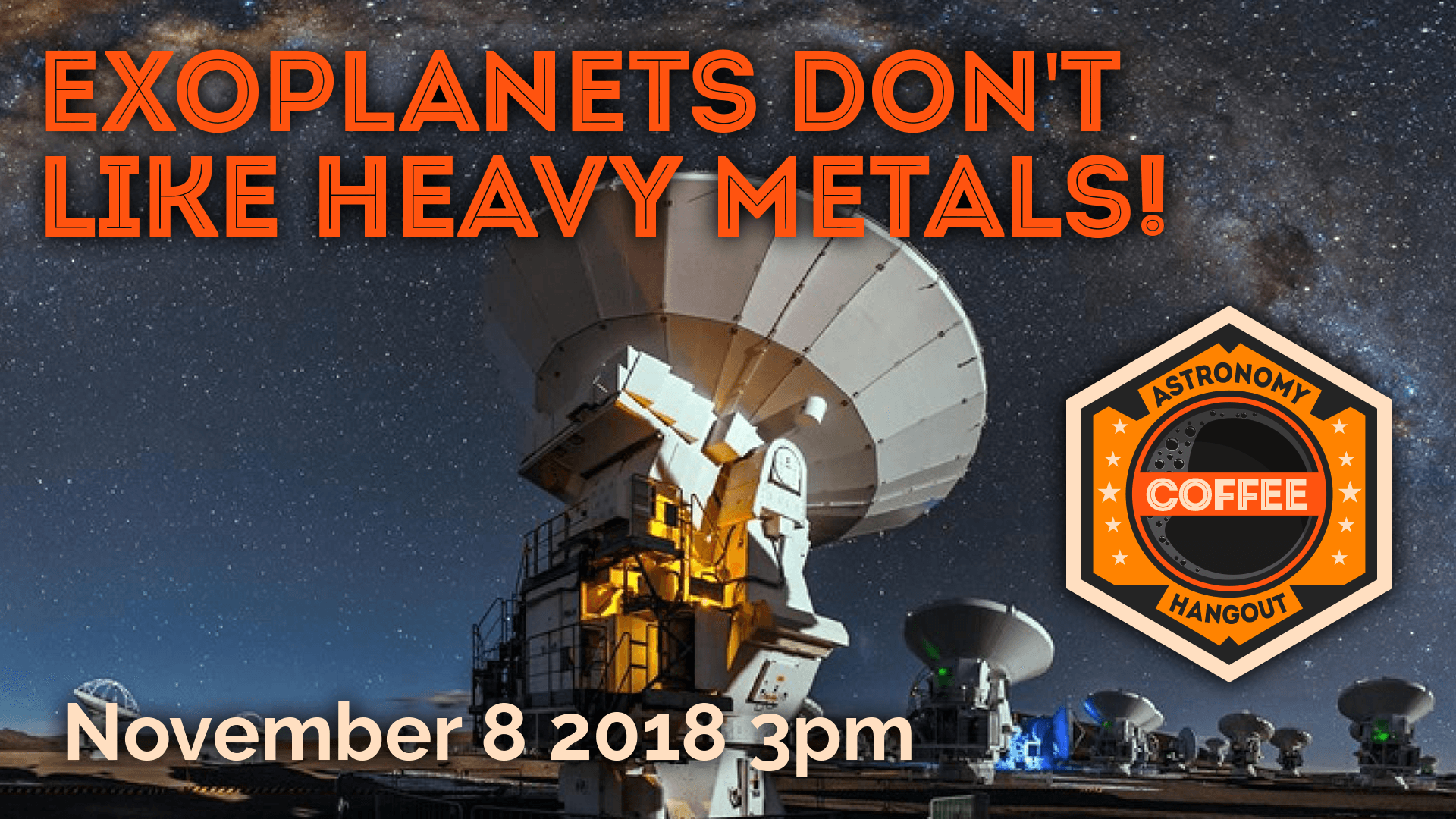Exoplanets Don’t Like Heavy Metals!
Carol Christian STScI
Studies of planetary systems have indicated that star systems with high metallicity (think iron − actually anything heavier than helium) may preferentially form planets, but a new survey suggests there are many compact, multiple-planet systems for which this trend does not hold. There could be many such compact systems that have been undetected until recently. The most common systems that have been discovered have larger Jupiter or Neptune sized planets. A team at Yale University has conducted a survey of 700 stars and been able to find smaller panels with newer technology such as their Extreme Precision Spectrometer. This instrumentation enables discovery of the smaller planetary systems. Such low metallicity systems have formed early on in the history of the universe and have been in existence for quite a long time. So what are those planetary systems like?
Join Tony Darnell and Carol Christian during Afternoon Astronomy Coffee on Thursday, 8 November at 3:00 pm Eastern Daylight Time (19:00 UTC) as they discuss with investigators John Michael Brewer and Songhu Wang (both from Yale University) about their survey and the intriguing relationship of metal content and the formation of planets.
- Join the Hangout on YouTube
- The Afternoon Astronomy Coffee series may be found on the Deep Astronomy website
- The link for the latest Afternoon Astronomy Coffee will be announced on the Deep Astronomy Facebook page
What Are "Afternoon Astronomy Coffee" and "Future in Space" Hangouts?
"Future In Space” and "Afternoon Astronomy Coffee" Hangouts are part of a weekly series, held every Thursday, that also includes a segment called "Footsteps to Mars." We bring the latest research in astronomy, highlights from the future of space astronomy and astronautics planning, as well as updates on the exploration of Mars to you every week via Hangouts on Air. With the sponsorship of both the American Astronomical Society and the American Astronautical Society, our hosts Tony Darnell, Carol Christian, Alberto Conti, and Harley Thronson examine today's breakthroughs in research and peer into the unfolding possibilities of what we may learn about the universe and Mars exploration. We join with members of the American Astronomical Society to chat, in an informal online setting modeled after "science coffee" events held in universities and research organizations across the country. We will examine what we hope to learn about exoplanets, black holes, the early universe, quasars, and life in the universe along with what technologies might help us — and reflect upon the scientific endeavors occurring today that uncover amazing astrophysics and lay the groundwork for studies to come.
We will also explore the technology and engineering used today as well as possibilities for future space travel and research with members of both societies, and probe what our future in space may look like and how we might get there. We will examine the underlying technologies of space telescopes, orbiters, landers, and human space vehicles now and in the years to come. We will delve into topics that help us understand the possibilities and limitations of human space flight and eventual human colonization of other worlds.
We hope you can join us each month as we bring experts from both societies — people who think about and plan for our future in space — to your computer, tablet, or smartphone. We invite you to bring your questions and comments and get ready to learn about the amazing possibilities for the future of space astronomy and exploration.


